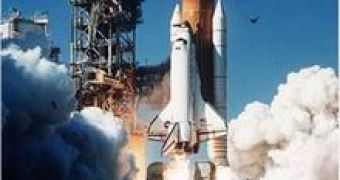Discovery is ready to be launched, at least that's what the oversight board is saying, thus ending the long period during in which NASA's space flights were cancelled, following the disaster of Columbia, in 2003.
The spacecraft has suffered some major improvements, following the results of all the inquiries regarding the crash that's still so vivid in our memory. For example, it's currently being fitted with a new external tank and a plan to use a complex and never-tested inspection boom to scour the shuttle for damage while it is still in orbit.
But the problems are far from over. Even if the lift-off is targeted for sometime between July 13 and July 31, three of the most critical post-Columbia changes are still pending, all of which involve protecting the orbiter and its crew from hazardous debris impacts or mitigating the effects of any impacts, which are important issues linked directly to the loss of Columbia and its seven crewmembers.
The oversight board, headed by ex-astronauts Thomas Stafford and Richard Covey, was established to monitor how well the US space agency (NASA) complied with the recommendations of the Columbia Accident Investigation Board, known by the acronym CAIB. And the results were not fantastic, seeing that by last week only seven of the CAIB requirements had been implemented, with 5 more having just been approved.
The panel intends to complete a preliminary report and present it to the NASA administrator before Discovery's flight readiness review on 29 and 30 June, in order to asses the completeness and suitability of all the repairs, and decided whether the spacecraft should take off or not.

 14 DAY TRIAL //
14 DAY TRIAL //